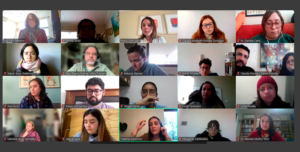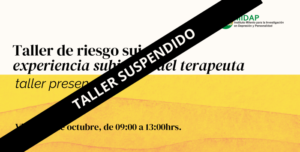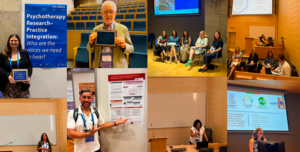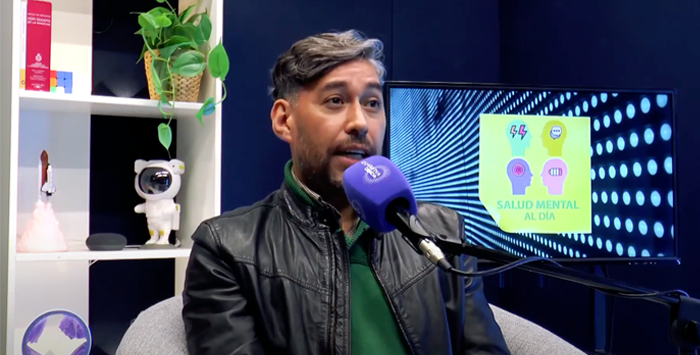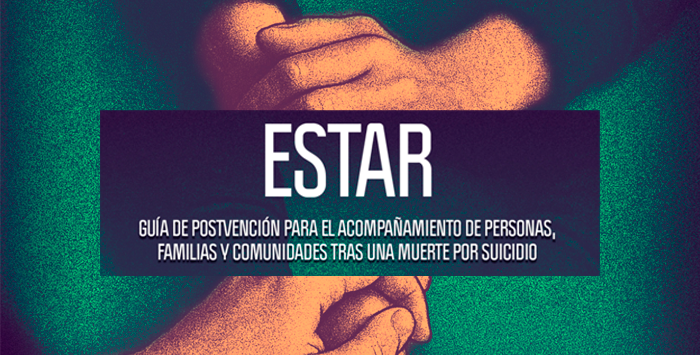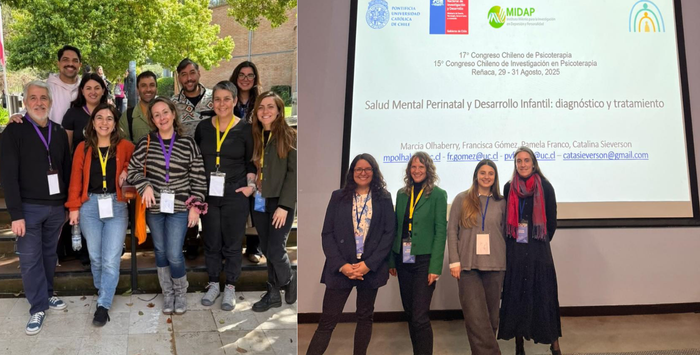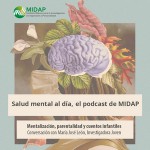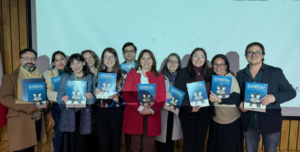
Investigadores de MIDAP publican guía de orientaciones clínicas para el abordaje psicoterapéutico de adolescentes tempranos con diagnóstico de depresión
Más de 200 personas participaron de la presentación de la “Guía de orientaciones clínicas para el abordaje psicoterapéutico de adolescentes tempranos con diagnóstico de depresión: Aportes para una intervención informada por el modelo de Terapia Basada en la Mentalización”, el pasado jueves 14 de agosto al Auditorio de la Facultad de Ciencias Sociales de la Universidad de Valparaíso. Esta guía fue editada por Javier Morán-Kneer y Javiera Duarte, investigador e investigadora joven de MIDAP. Esta actividad se realizó en el marco del proyecto FONIS SA22I0168, “Estudio de factibilidad y aceptabilidad de una intervención psicoterapéutica familiar breve informada por la mentalización para adolescentes entre 10 y 14 años con diagnóstico de depresión”, que se desarrolló los últimos dos años. “A inicios del año 2022 un grupo de profesionales e investigadores clínicos en salud mental infanto-adolescente decidimos aunar esfuerzos y colaborar en el desarrollo de un proyecto financiado por el Fondo de Investigación en Salud. Nuestro interés estaba focalizado en aportar a las prácticas clínicas con adolescentes que principalmente se llevan a cabo en salud pública. En ese momento estábamos recién comenzando a ver con algo de distancia los estragos producidos a nivel mundial y local por la pandemia por COVID-19. Ya sabíamos que los temas de salud mental emergían como preocupación importante, y como profesionales de la salud mental teníamos una preocupación particular: los niños y niñas que vivieron el confinamiento en un momento del ciclo vital de suma relevancia para la salud mental; un momento en el que empiezan a gestarse cambios estructurales y funcionales a nivel de la corteza cerebral que hacen al cerebro particularmente sensible a las contingencias ambientales”, señala Javier Morán en la introducción del documento. Un aspecto a destacar de esta guía clínica es que incorpora el modelo de Terapia Basada en la Mentalización (MBT), el que se centra en la capacidad de comprender los estados mentales propios y ajenos —tales como creencias, sentimientos, deseos e intenciones— y cómo estos influyen en el comportamiento de las personas. “En esta guía contamos con la valiosa orientación y colaboración del doctor Efraín Bleiberg, quien es uno de los principales desarrolladores y exponentes de este tratamiento a nivel mundial”, acotó el investigador. En la actividad participó Gonzalo Lira, decano de la Facultad de Ciencias Sociales de la Universidad de Valparaíso; Claudio Castillo, director del Servicio Nacional de Protección Especializada a la Niñez y Adolescencia; el investigador colaborador Dr. Ulises Ríos, quien presentó “El rol del maltrato infantil en la enfermedad anímica: evidencia y reflexiones sobre mecanismos”; el estudiante de doctorado de MIDAP, Nicolás Gabriel, con “Mentalización y función reflexiva parental: claves para el trabajo clínico con cuidadores de adolescentes”, además de Edgardo Toro (PUCV) y Paula Lobos (ONG Paicabí). Finalmente, Javier Morán y Javiera Duarte presentaron la guía. “La actividad fue muy bien recibida por el público, y nosotros quedamos contentos porque el objetivo que teníamos con esta actividad era elaborar un material que sea práctico, de uso para los clínicos, en un área particular, que son los adolescentes más jóvenes. En general hay poca formación para trabajar con esos grupos y además desde una mirada que incorpore a la familia en el trabajo. No solo nos interesa trabajar con los niños y niñas, sino que fortalecer los sistemas familiares para que funcionen como andamiajes para el fortalecimiento de la mentalización de su hijo. Los resultados que presentamos, al menos preliminarmente, dan cuenta de mucha adherencia, de la presencia de cambios significativos, de mejora sintomática, de valoración por el dispositivo de intervención intensiva que estamos haciendo”, agregó Morán. La guía está disponible aquí. Fuente: MIDAP y Comunicaciones UV.


